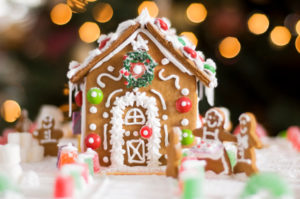With the holiday season quickly approaching, it is important to stay safe while enjoying the time spent with family. Paying attention to safety will ensure a happy holiday season. The Level 1 Trauma Center at Cooper University Health Care wants to make sure your holiday season doesn’t include a visit to the hospital.
- Food – Be sure to follow all safe handling instruction for raw food. Food, especially meats, should be thoroughly cooked and reach an internal temperature of at least 165 degrees. Check food often while cooking to make sure nothing is at risk of catching fire.
 Christmas Trees – Trees should be watered often to reduce the risk of it catching fire. Secure the tree in a proper base so it cannot fall over. Make sure all ornaments are properly secured and not damaged or breakable.
Christmas Trees – Trees should be watered often to reduce the risk of it catching fire. Secure the tree in a proper base so it cannot fall over. Make sure all ornaments are properly secured and not damaged or breakable.
- Fire – Keep candles away from flammable items such as drapes and out of reach for kids and pets. Blow out candles when leaving the room or going to sleep. Use proper candle holders to prevent tipping. Clean fireplaces and chimneys regularly. Only burn items designated for indoor fireplaces. Keep protective glass in place whenever the fireplace is in use.
- Lights – Check lights for damage, prior to use. Make sure to use the appropriate lights for the environment; do not use indoor lights outside. Unplug all lights when leaving the house or going to bed.
- Extension cords – Do not use more than one extension cord together. Inspect cords for damage before using. Make sure cords are appropriate for the environment and use. Indoor extension cords should never be used outdoors.
- Ladders – Use ladders of an appropriate height for the task. Do not stand on furniture to reach high places. Only use ladders on flat surfaces and have a spotter when climbing more than four feet off the ground.
- Travel — Ensure seat belts are worn at all times. Have a designated driver picked before leaving for a party. If you are hosting, make sure no one leaves if they have had too much to drink. Eliminate distracted driving, including texting and the use of any hand held devices. If a GPS is necessary, start the route prior to leaving and keep the device mounted while moving.
- Detectors – Test carbon monoxide and smoke detectors at least once a month. Make sure detectors are on every level of the house and install additional ones if necessary.
 Joshua P. Hazelton, DO, FACS, FACOS,
Joshua P. Hazelton, DO, FACS, FACOS,
Director of Trauma Research
at Cooper University Health Care
